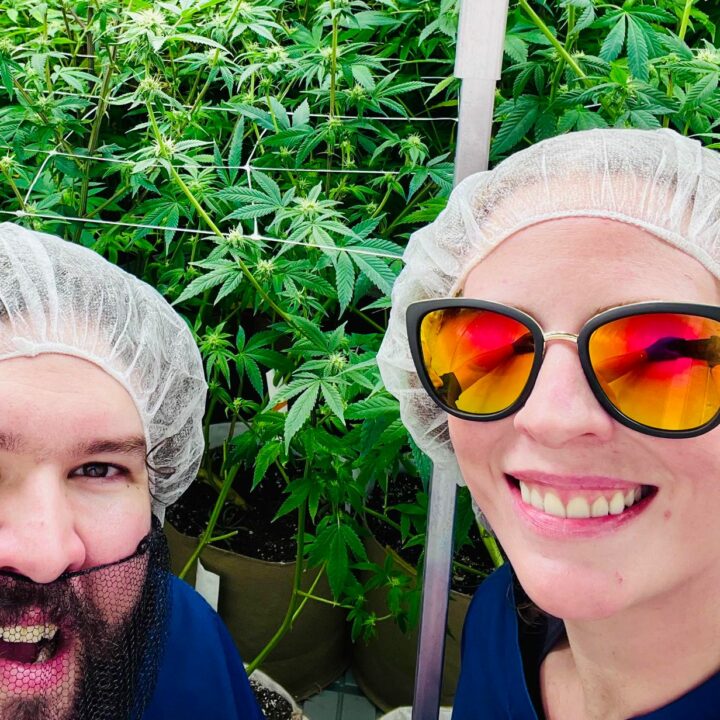Betting on Building in Edmonton
Canada’s recreational cannabis industry is growing and is predicted to be valued in the billions domestically and over $100 billion internationally by 2025. It’s a land of opportunity at home and abroad. So where is the best land to call home for those hoping to build a cannabis business?
Token Naturals began in Vancouver as an idea born from the Sauder School of Business at the University of British Columbia. Because the West Coast is such an established cultural hub for cannabis in Canada, many were surprised when we took our concept and put down roots in Edmonton. What we predicted then was what we see coming to fruition now: Edmonton has become a particularly alluring home for cannabis companies.
Edmonton has the space needed for large grows and commercial builds, as supported by the presence of one of the largest national Licensed Producers. Land is comparatively affordable, and Alberta has some of the lowest energy costs and taxes in Canada.
We have a skilled, young and eager workforce with plentiful experience in agriculture, manufacturing and processing. We have a history of provincial and municipal governments with proactive and pro-business attitudes. It is the perfect culmination of the forces required to lead an industry. It seems the trends are leaning towards diversification of the economy and ending our dependence on the oil and gas industry.
Alberta Gaming, Liquor and Cannabis (AGLC), the province’s governing body of cannabis, has one of the stronger cannabis boards in the nation. The private retail distribution model that mirrors Alberta’s liquor sales helps both large and small businesses and provides consumers with product choice. Albertans had immediate access to recreational cannabis upon legalization as Alberta was prepared to be first to market in licensed and functioning retail stores. This is one of the major reasons that Edmonton and Calgary are comparatively free of the black market dispensaries seen flourishing in other cities. Despite a short moratorium on retail licensing, they have re-opened the application system and continue to lead the national charge in bringing recreational cannabis to consumers. Unlike other provincial regulatory boards, AGLC gave control back to the business owners, leaving it to them to decide if they want to open amidst rumours of regulatory shifting and potential product shortages.
Edmonton is an increasingly progressive city that is doing a great job shaking the dangerous mentality of “how it’s always been done”. The City has been motivated to lay out an efficient and effective policy, and they did so early on with clear and fair zoning guidelines. Ours was the first municipality to introduce a cannabis bylaw. As an LP applicant, our experience has been overwhelmingly positive; we’ve seen that the City has been swift and decisive in issuing development permits. As long as the area in question is zoned for commercial use and the company in question submits a solid, thoughtful and fulsome application package, opposition and ineffectual bureaucracy has been minimal. Rationality has prevailed over fear mongering, and that’s when real business can get done. Local organizations such as Edmonton Chamber of Commerce, Edmonton Economic Development Council, Agriculture & Food Council of Alberta and University of Alberta have provided unparalleled support on the often bumpy road of building a new company. We have felt and seen time and again that these organizations genuinely want to see us, a local business, succeed. ATB Financial, a crown corporation, has proven more likely to engage with cannabis start-ups than the other large Canadian banks.
On a personal note, Edmonton is home. It’s where I grew up, where I and many of the Token team attended post-secondary school, and it’s where most of our investors live. It’s my opinion that this is the best city to live in and the best city to work in.
So now, we build in Edmonton. As we finish our A Round fundraise, Token is currently building an extraction facility that will be the most central cannabis operation in the city and can process 65,000 kg of cannabis flower each year into extracted and derivative products like oils and edibles when legal. The completion of the refinery facility will allow us to move our Licensed Producer application forward from Conditional Approval to a Standard Processor license. We wouldn’t be about to round this corner if not for the support of the provincial and municipal governing bodies.
Of course, there is always room for improvement. We were very disappointed to hear that the Alberta Investor Tax Credit (AITC) and the Capital Investment Tax Credit (CITC) programs have been placed on hold for re-evaluation. CITC offers a tax credit that is worth about 10% of the capital costs required for new equipment and structures, which actively rewards investment in industry within Alberta. The AITC provides a tax rebate to eligible investors who live in Alberta and have provided equity capital to eligible businesses. Even more beneficial was their diversity credit, which gave additional rebates to those investing in a business that showcased diversity in leadership positions and inclusion in hiring practices. We urge anyone involved in small business in Alberta, whether on the investor or company side, to speak with your MLA and request that the merits of the programs be reconsidered.
The community growth we’ve seen here in the past ten years is a harbinger of what’s still to come. Those who live here know that Edmonton supports Edmonton, and that strength of community offers an unquantifiable benefit. There’s nowhere else in the world I’d rather invest my time.
Share This



